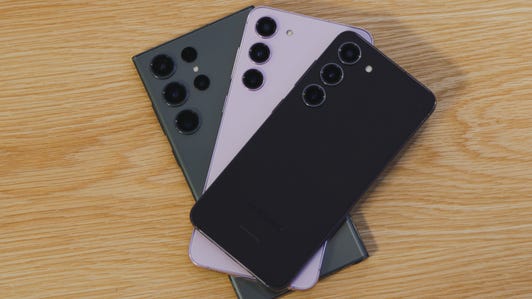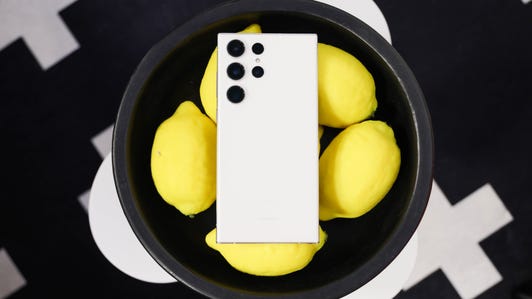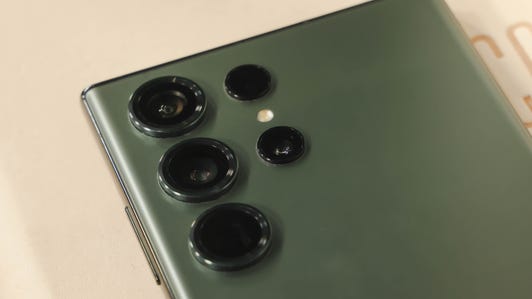
This story is part of Samsung Event, CNET's collection of news, tips and advice around Samsung's most popular products.
Samsung's Galaxy S23 Ultra is getting a 200-megapixel camera, the phone line's biggest camera upgrade in years. Roughly double the resolution of its predecessor, the Galaxy S22 Ultra, the phone made its debut at the Samsung Unpacked event on Wednesday, with pricing that starts at $1,200 (£1,249, AU$1,949). It's available on Feb. 17, with preorders live now.
The Galaxy S23 lineup, which also includes the $1,000 Galaxy S23 Plus and $800 Galaxy S23, is Samsung's latest effort to encourage people to upgrade as the smartphone industry has struggled. The addition of a 200-megapixel camera on the Galaxy S23 Ultra doesn't come as a huge surprise, considering Samsung announced a new image sensor with that same resolution just last month.
Samsung's all-new Galaxy S23 flagship lineup is now available to preorder, with devices shipping on Feb. 17. You can save on the latest devices with several Galaxy S23 preorder deals already available at Samsung, Best Buy, all the major phone carriers and more.
It does suggest, however, that Samsung views the camera as being the most instrumental part of a phone -- and expects us to pay top dollar for it. With the Galaxy S23 Ultra, Samsung is clearly targeting photographers who want a giant screen and a superb camera. We'll have to wait until we've tested the phone to see if it delivers on those promises.
Read more: Galaxy Book 3 First Look: Samsung's Pro Laptops Are Leveling Up
Otherwise, the Galaxy S23 Ultra includes routine upgrades such as a new processor, fresh colors and extra storage for the base model, along with more parts that are made from recycled materials.
The Galaxy S23 Ultra's new camera
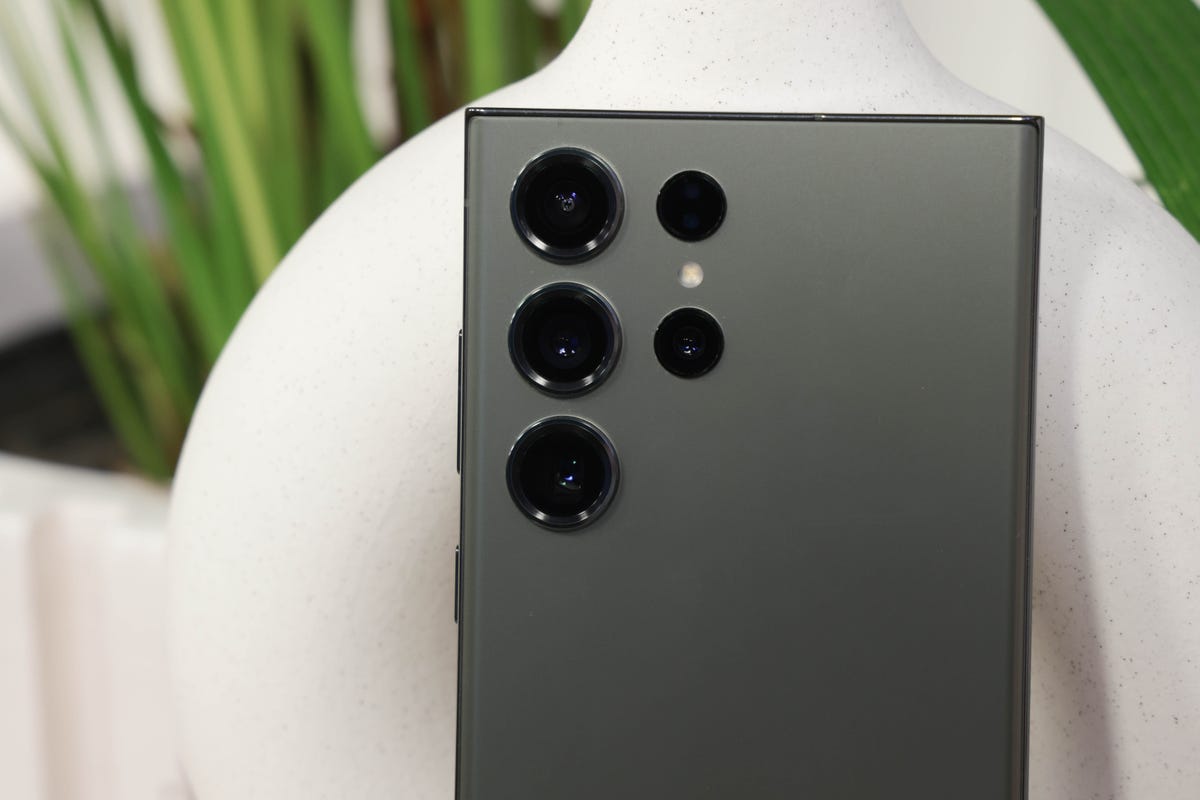
The Galaxy S23 Ultra's camera.
Bobby Oliver/CNETOn paper, the Galaxy S23 Ultra's 200-megapixel camera sounds like a major step up. It looks like the biggest camera leap Samsung has made in years, considering the last three generations of Galaxy S Ultra phones have had 108-megapixel main cameras, dating back to the Galaxy S20 Ultra in 2020.
But megapixels alone don't tell the whole story. Sensor size, speed and image processing algorithms also affect the camera's image quality, so we'll have to test the phone before deciding whether this is a truly monumental upgrade.
Those algorithms indeed play a big role in the Galaxy S23 Ultra's camera improvements. Joshua Cho, head of Samsung's visual solutions team, said artificial intelligence plays a more prominent part in everything from night mode to the way the camera captures high dynamic range.
"As soon as you press the button on the camera, the AI function kicks in," Cho said in an interview with CNET via an English language translator ahead of Samsung's Unpacked event.
The Galaxy S23 Ultra takes 12-megapixel photos by default, grouping 4x4-pixel squares into one bigger pixel using a technology called pixel binning. This, combined with better performance for each pixel, allows the sensor to gather more light, which could be useful when shooting in dim environments.
You can also shoot at the full 200-megapixel resolution, which Samsung positions as being ideal for people who want large prints of their photos. If you want something in between, you can also capture photos at a 50-megapixel resolution. Previous Galaxy S Ultra phones also allowed you to shoot at the sensor's full resolution, but be aware that you'll have to deal with large file sizes if you do so.
The selfie cameras across all the new Galaxy S23 phones have an upgraded 12-megapixel sensor, which is a boost in resolution from the S22 and S22 Plus' 10-megapixel front camera but lower than the S22 Ultra's 40-megapixel sensor. Instead, Samsung says the selfie camera uses artificial intelligence to improve object identification so that it can optimize images accordingly rather than prioritizing resolution. That means it should be better at distinguishing people from their backgrounds more accurately.
The Galaxy S23 Ultra inherits the same zooming capabilities as its predecessor, offering an optical zoom at 3x or 10x magnification and up to a 100x digital zoom. Like the S22 Ultra, the S23 Ultra uses two 10-megapixel telephoto cameras to accomplish this. Even though night mode was a big focus for the Galaxy S22 lineup, Samsung says it's further improved the way the Galaxy S23 Ultra can capture photos in the dark, offering even more brightness this time around.
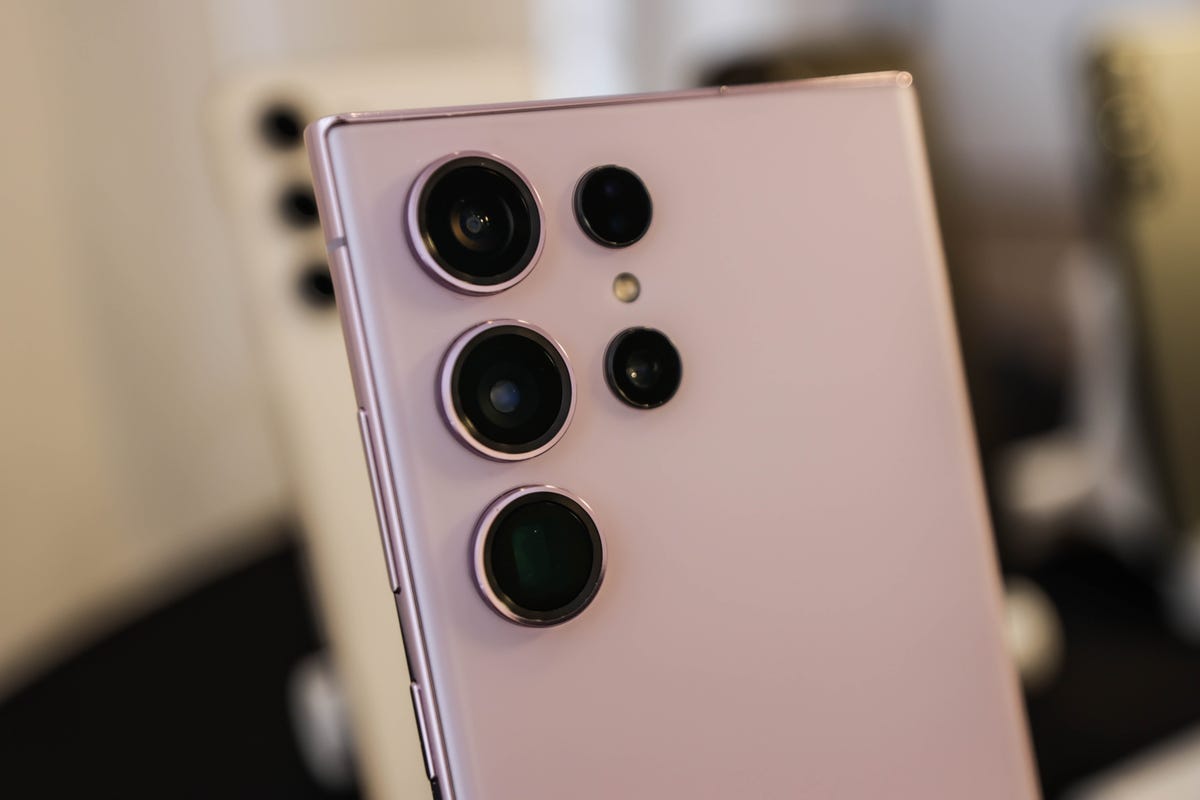
The Galaxy S23 Ultra in lavender.
Bobby Oliver/CNETVideo recording gets a slight change across the lineup, with the S23 family supporting 30 frames per second when shooting at 8K resolution. That's an increase from the S22 Ultra's frame rate of 24fps when recording at the same resolution. Compared to 24fps, 30fps is usually preferable for broadcasting live footage according to Adobe, which makes sense considering Samsung's efforts in appealing to social media influencers, streamers and Gen Z shoppers. You'll also be able to shoot 1080p video at 120fps instead of 60fps, which should improve the quality of slow-motion shots.
Samsung also says the correction angle for its optical image stabilization has doubled. I'm curious how much of a difference that makes since I found the iPhone 14 Pro's Action Mode to be more reliable than Samsung's Super Steady mode during my testing. The S23 Ultra can also shoot video at a wider angle, Samsung says.
However, it doesn't seem that Samsung added any new shooting modes for the Galaxy S23 lineup. Given the S23 Ultra's big focus on camera quality, I had hoped to see new tools and features that could put that new hardware to better use.
But Samsung is doing something interesting with its external camera apps, Expert Raw and Camera Assistant. After you download these apps for the first time, the additional camera settings that these apps provide will be integrated directly into the native camera app. That could make it easier for photographers who want more editing control to customize the look and feel of their photos without having to switch between apps.
Galaxy S23 Ultra has a new chip, familiar design
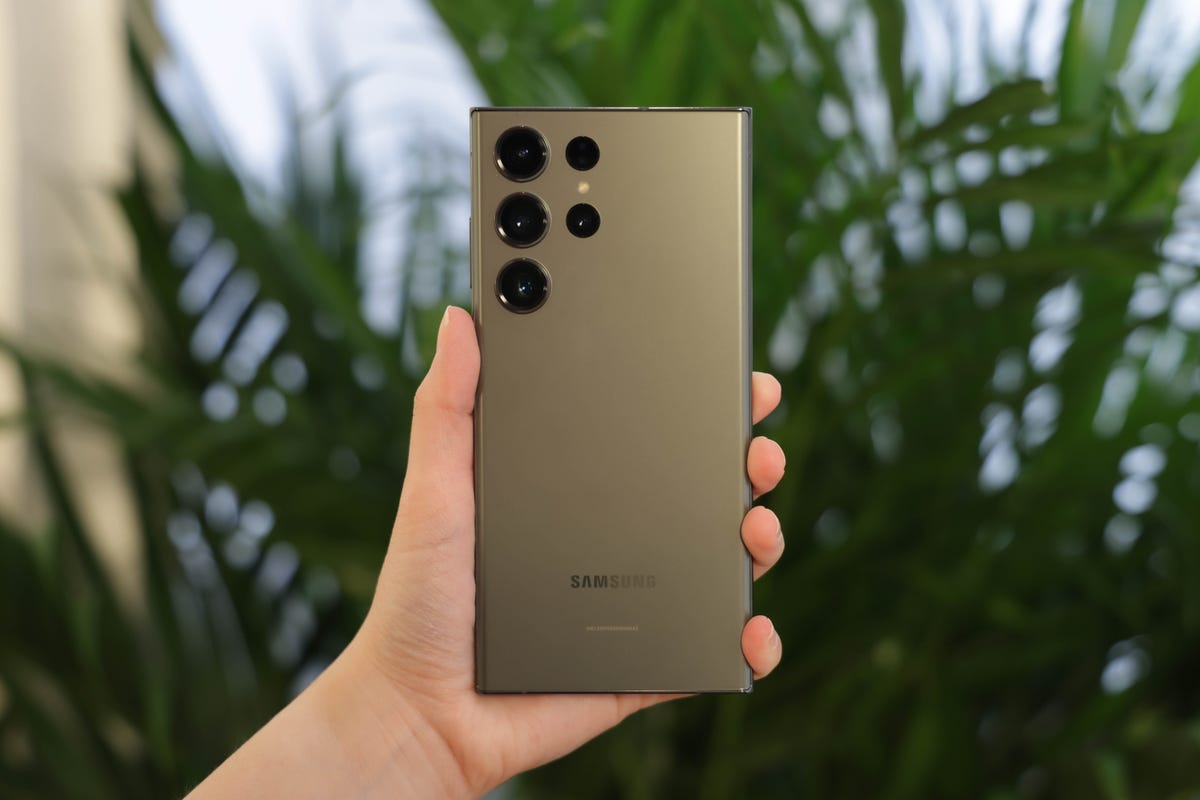
Samsung's Galaxy S23 Ultra in green.
Bobby Oliver/CNETSamsung's new phones are powered by a special version of Qualcomm's Snapdragon 8 Gen 2 processor that's been optimized for the new Galaxy S23 lineup, which it claims should result in faster performance. We'll have to test the phone to see if it lives up to these claims.
But if it does, it might help set the Ultra apart from other phones that include Qualcomm's new chip, like the OnePlus 11 5G. The option for satellite connectivity is noticeably absent from Samsung's new smartphone lineup, coming after Apple added the ability to contact emergency services via satellite to its iPhone 14 lineup. Qualcomm also announced a similar feature, which will be launching later this year.
Like the Galaxy S22 Ultra, Samsung's newest Ultra phone also has a 5,000-mAh battery capacity and includes the S Pen. You'll be able to get the phone in 256GB, 512GB or 1TB storage capacities.
The Galaxy S23 Ultra doesn't look all that different from last year's Galaxy S22 Ultra. It has the same boxy design but comes in a new selection of colors: black, cream, green and lavender. Samsung also says it's increased the use of recycled materials in the Galaxy S23 Ultra's design by using ocean-bound plastics in the phone's external components for the first time.
The screen still measures 6.8 inches like last year's model, making it one of the largest phones you can buy. (The Pixel 7 Pro and iPhone 14 Pro Max each have a 6.7-inch screen.) That phone is also protected by Gorilla Glass Victus 2, a new version of Corning's glass that the company says provides better drop resistance on tough surfaces like concrete. There's also an adaptive refresh rate of up to 120Hz to allow for smoother scrolling and animations, a feature that's become common even on less expensive phones.
Samsung is launching the Galaxy S23 lineup as it's become increasingly difficult to convince smartphone owners to upgrade their devices. Economic challenges slowed smartphone shipments throughout 2022, according to estimates from The International Data Corporation, Canalys and Counterpoint Research.
Data from Assurant, an insurance provider that helps companies develop trade-in programs, also suggests that customers are holding onto their devices longer. The company reported in September that the average age of traded-in devices surpassed three and a half years for the first time.
But Counterpoint Research's Peter Richardson does describe the premium smartphone segment as "more resilient" than the market for low to midrange phones in the company's report. Perhaps customers are more likely to invest in pricier phones with the hope that they won't have to upgrade as often. Samsung dabbles in all three markets, but the $1,200 Galaxy S23 Ultra and $1,800 Galaxy Z Fold 4 sum up the tech giant's vision for what a premium phone should be.
As phones have evolved, annual hardware upgrades have started to feel less revolutionary and more incremental. Whether that sentiment holds true for the Galaxy S23 Ultra all comes down to how much of a difference that new 200-megapixel camera truly makes.
Samsung Galaxy S23 lineup specs compared
|
|
Galaxy S23 | Galaxy S23 Plus | Galaxy S23 Ultra |
|---|---|---|---|
| Display size, tech, resolution, refresh rate, brightness | 6.1-inch AMOLED; 2,340x1,080 pixels; 120Hz Adaptive Refresh Rate; 1,750 nits | 6.6-inch AMOLED; 2,340x1,080 pixels; 120Hz Adaptive Refresh Rate; 1,750 nits | 6.8-inch AMOLED 3,088x1,440 pixels; 120Hz Adaptive Refresh Rate; Edge Screen; 1,750 nits |
| Pixel density | 425 pixels per inch | 393 pixels per inch | 500 pixels per inch |
| Dimensions (inches) | 2.79 x 5.76 x 0.3 in | 3 x 6.21 x 0.3 in | 3.07 x 6.43 x 0.35 in |
| Dimensions (millimeters) | 70.9 x 146.3 x 7.6 mm | 76.2 x 157.7 x 7.6 mm | 78 x 163.3 x 8.9 mm |
| Weight (ounces, grams) | 168 g (5.93 oz) | 196 g (6.91 oz) | 234 g (8.25 oz) |
| Mobile software | Android 13 | Android 13 | Android 13 |
| Camera | 50-megapixel (wide), 12-megapixel (ultrawide), 10-megapixel (telephoto) | 50-megapixel (wide), 12-megapixel (ultrawide), 10-megapixel (telephoto) | 200-megapixel (wide), 12-megapixel (ultrawide) 10-megapixel (telephoto) 10-megapixel (telephoto) |
| Front-facing camera | 12-megapixel | 12-megapixel | 12-megapixel |
| Video capture | 8K at 30fps | 8K at 30fps | 8K at 30fps |
| Processor | Galaxy-optimized Qualcomm Snapdragon 8 Gen 2 | Galaxy-optimized Qualcomm Snapdragon 8 Gen 2 | Galaxy-optimized Qualcomm Snapdragon 8 Gen 2 |
| RAM/storage | 8GB RAM + 128GB; 8GB RAM + 256GB | 8GB + 256GB; 8GB + 512GB | 12GB + 256GB; 12GB + 512GB; 12GB + 1TB |
| Expandable storage | None | None | None |
| Battery/charging speeds | 3,900 mAh (25W wired charging) | 4,700 mAh (45W wired charging) | 5,000 mAH (45W wired charger) |
| Fingerprint sensor | In-display | In-display | In-display |
| Connector | USB-C | USB-C | USB-C |
| Headphone jack | None | None | None |
| Special features | 5G (mmw/Sub6), IP68 rating, faster wired charging, wireless PowerShare to charge other devices | View More









 Add Category
Add Category
